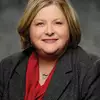Taking the Hassle Out of Healthcare Learning: Professional Associations Offer Members Educational Filter & Advancement Platform
Since the turn of the century, when Florence Nightingale encouraged nurses to keep learning after their official training had ended, through today, when most healthcare professionals are required to continue their education if they wish to keep practicing, continuing education has been seen as critical for maintaining competency in healthcare delivery. The current high demand for continuing education reflects the volume of information and the potential for healthcare professionals to be overwhelmed.
Keeping pace
Continuing education is considered essential for quality care because technology, techniques and practice all are constantly advancing. What is learned in school beyond the conceptual and theoretical becomes obsolete almost the minute after graduation, especially for healthcare professionals in fields that are continually evolving, such as cardiovascular care. These professionals must keep up with massive amounts of new, critical information to ensure their patients receive the best quality of care available.
While it is possible to view continuing education as a mere formality of maintaining one’s credentials, in reality it is of vital importance for both personal and professional
development. Because cardiovascular medicine is constantly advancing, the real learning begins with graduation from school. Even the students who graduate at the top of the class will not continue to succeed unless they master performing their work while constantly improving. This approach is the only one that allows patient care to become safer and more effective.
Continued learning not only imparts to cardiovascular professionals that development is crucial at every career stage but also provides an environment for self-reflection, evaluating their skills, boosting professional confidence and gaining exposure to career advancement opportunites. Development can be accomplished with a variety of activities, such as gathering information from respected publications, learning through materials provided by reputed organizations and attending conferences and seminars that offer both informal and formal mechanisms for knowledge acquisition and skill building of all levels. Learning theory has demonstrated that adults learn best through peer input and support, making this type of continuing education critically important to advancement and creativity in the cardiovascular field.
Filter function
Today there is simply too much information for busy professionals to identify the best opportunities. For this reason, plus the relentless pace of medical advancement, one important goal of many professional associations, including the Alliance of Cardiovascular Professionals (ACVP), is to research and curate the materials and educational opportunities that will provide their members with knowledge to advance and, ultimately, to ensure patients receive the best care. By identifying the information that is most important and urgent, professional associations allow professionals to focus on their practice rather than spending their time and energy searching for continuing education credits and data that may not even benefit them. The continuing education seminars offered by professional associations, such as ACVP’s regional meetings, provide the additional benefit of learning alongside peers who can provide support that promotes professional advancement. Further, by keeping track of members’ learning activities, professional associations also eliminate the hassles of paperwork and bookkeeping for healthcare professionals, thus allowing them to focus on their work.
Ultimately, most healthcare professionals want to advance so they are able to provide the highest quality patient care and support the growth of their field. Many find professional rewards and personal fulfillment from participating in continuing education. When they work with associations that have curated opportunities relevant for them, cardiovascular professionals can focus on their jobs and provide their patients with the highest quality of care.
Linda Paxton, BSN, MBA, is the administrative director of Cardiovascular Services at St. Mary’s and St. Francis Hospitals at the Heart & Vascular Institute of Bon Secours Richmond Health System in Virginia. She is the 2016 president of ACVP.
